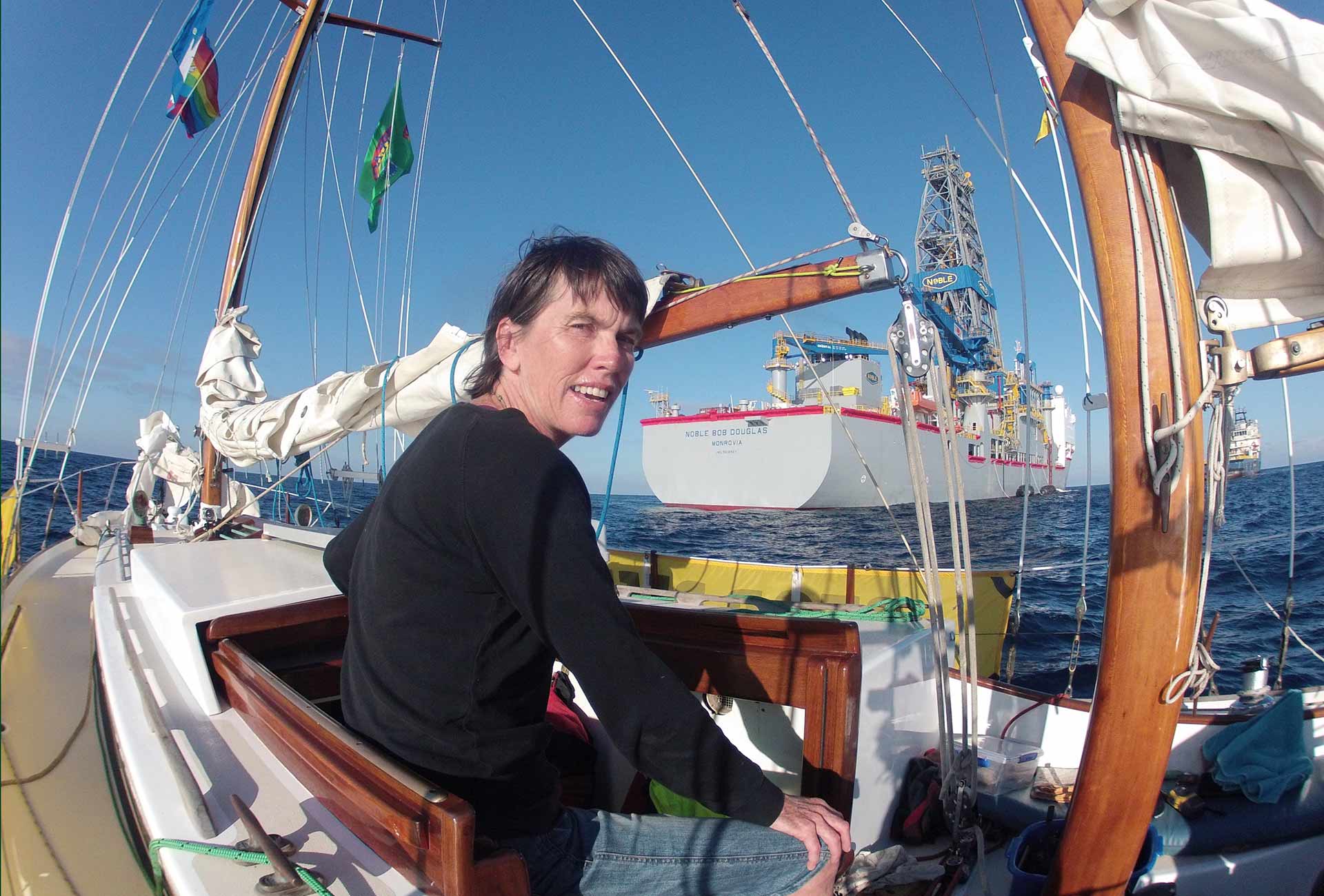Amsterdam – Bunny McDiarmid and Jennifer Morgan have officially taken up their new roles today, sharing leadership of the global environmental organisation.
Bunny is a 30-year veteran of the organisation as an activist, ship’s crewmember, and most recently the executive director of Greenpeace New Zealand which, under her leadership, became a powerhouse of innovation in the Greenpeace world. Jennifer was formerly the Global Director of the Climate Program at the World Resources Institute. A climate activist, she has been a leader of large teams at major organisations, and her other ports of call have included the Worldwide Fund for Nature, Climate Action Network, and E3G.
“It’s very exciting to be leading the organisation at a time when more and more people around the globe are standing up and acting together because they want to help create a better, more sustainable world”, said Bunny. “People are increasingly willing to challenge the status quo to make room for this to happen,” she added.
“We’re very keen to find new inroads and opportunities whereby Greenpeace’s strengths in campaigning and direct action connects naturally with these efforts. Collectively we can accelerate the pace and scale of change,” said Jennifer. “We want to find new ways to engage with our supporters – especially young people, and women and girls around the world – to become more active in changing the destructive course our planet is currently on.”
The new International Executive Directors – whose appointment was announced earlier this year, on 15 January – will be based at Greenpeace International, in Amsterdam, the Netherlands. They will share leadership of the organisation, and in the coming weeks will define how they will divide their role and responsibilities.
“Shared leadership is not a new idea, but it is one whose time has most definitely come,” said Jennifer. “Collective leadership is not only something that Greenpeace needs more of, but something the whole world needs more of. We’re looking forward to building our version of it in the hope that it contributes to more shared leadership around the world”
“The challenge ahead for us all is to pass on to future generations a world that is better able to sustain itself in all its wondrous diversity,” said Jennifer.
“This will be a world where we recognise that people are but one of many species who share the planet,” added Bunny. “It needs to be a world where our way of living and making a living reflects an understanding that our own fates are intimately connected to each other and to that of this small and finite planet we call home.”

ENDS
